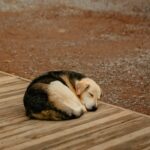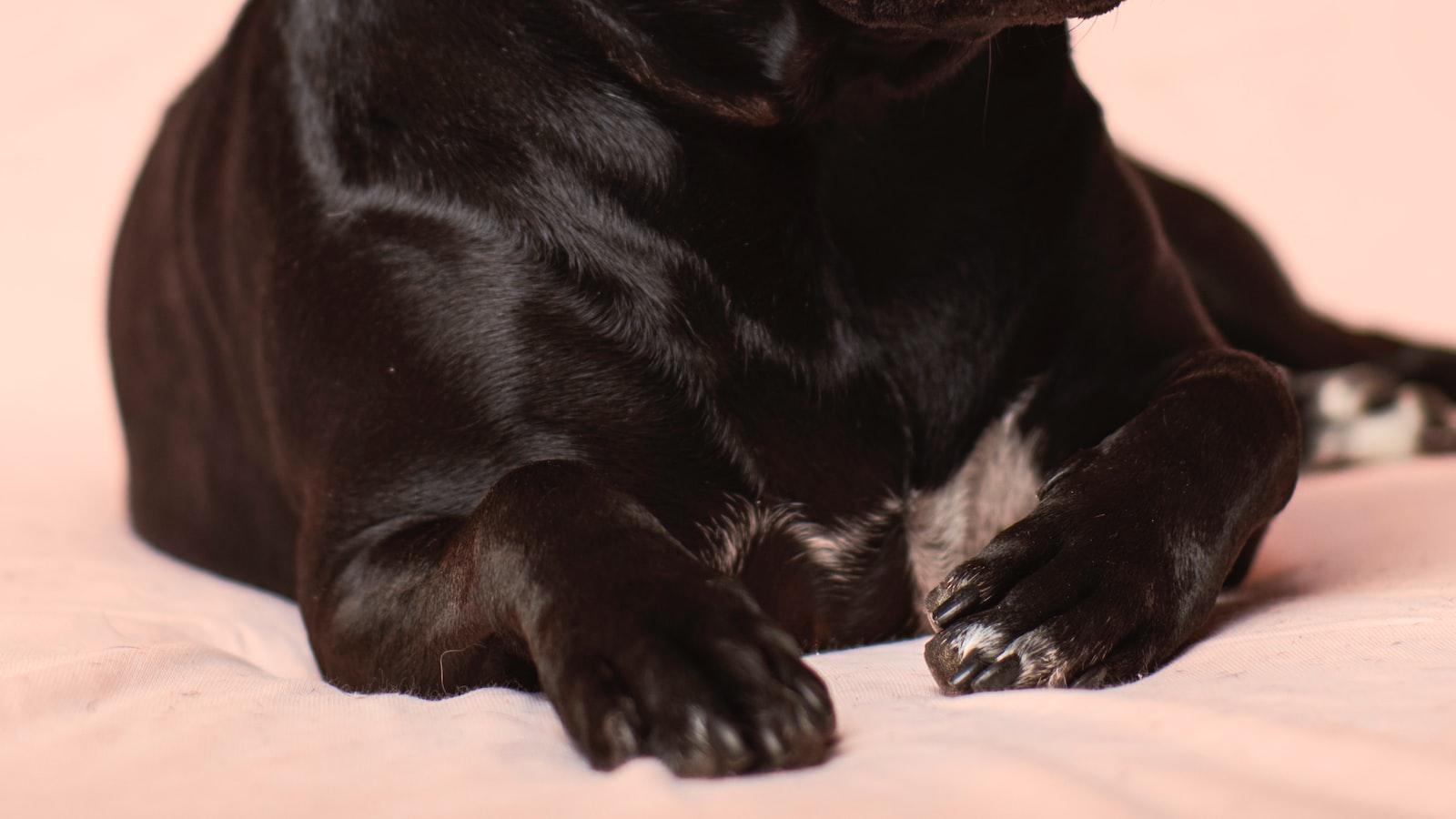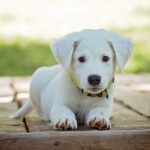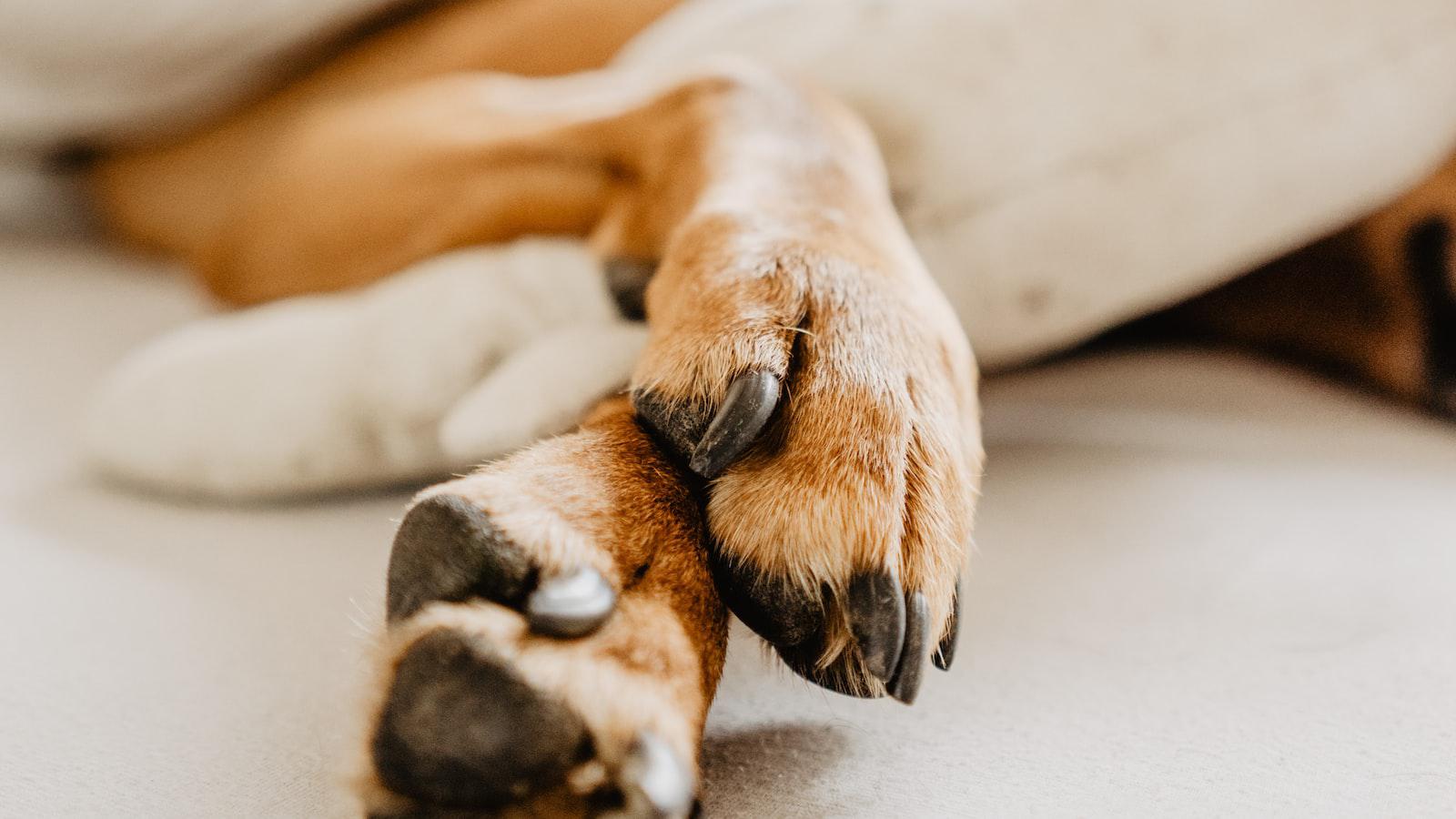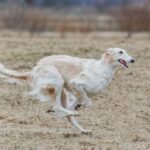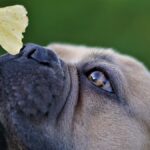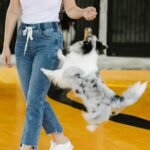Meet Fido, your furry and feathered pal who brightens even the gloomiest days with his wagging tail and slobbery kisses.
From playing fetch to snuggling on the couch, your four-legged sidekick never fails to bring joy to your life.
However, there’s one canine quirk that has left you scratching your head in bewilderment: why in the world does Fido wipe his paws after doing his business?
Surely, he can’t be concerned about hygiene, can he?
In this curious journey into the mind of man’s best friend, we dive deep into the intriguing world of doggie habits to uncover the mystery behind this paw-wiping phenomenon.
So, grab a cup of coffee, curl up on the couch with Fido by your side, and let’s sniff out the answer to the question you never knew you needed to ask: why do dogs wipe their paws after pooping
Ever noticed your dog wiping its paws after using the toilet?
Have you ever wondered: Why do dogs wipe their paws after pooping?
Read on to find the gross answers.
Why do Dogs Wipe Their Paws After Pooping?
Dogs are fascinating creatures with their own quirky habits and behaviors that often leave us scratching our heads.
One such behavior that may seem curious to many dog owners is why dogs wipe their paws after pooping.
While it may appear to be a random act, there are actually some reasons behind this seemingly odd behavior.
One possible reason for dogs wiping their paws after pooping is instinctual.
In the wild, dogs have a natural inclination to bury their waste to prevent the spread of scent and to mark their territory.
By wiping their paws on the ground or grass after pooping, dogs are essentially attempting to cover up their scent, leaving a lesser trace for potential predators or rivals.
This behavior can be particularly prevalent in dogs that have a strong prey drive or those who are more closely linked to their wild ancestors.
Tying into this instinctual behavior, another possibility is that paw wiping serves as a scent-marking behavior for dogs.
When a dog walks or runs, their paws come into contact with various surfaces, picking up scents from their surroundings.
By wiping their paws on the ground after pooping or urinating, dogs are leaving behind their scent, essentially marking their territory.
This behavior is especially prevalent in male dogs, who use urine to leave a more distinct scent, but even female dogs will wipe their paws to leave their mark.
Another explanation for this behavior is that dogs simply want to clean themselves.
Much like how we humans wipe ourselves after using the bathroom, dogs may feel the need to remove any lingering residue from their paws after pooping.
Dogs have a highly developed sense of smell, and they may find the odor of their own waste unpleasant.
By cleaning their paws, they not only remove any physical residue but also eliminate any lingering smells that could bother them.
Additionally, wiping their paws after pooping may serve a practical purpose for dogs.
Imagine if you had to walk around with poop stuck to your shoes – not a pleasant thought, right?
Well, dogs have a similar aversion to having dirty paws.
By wiping their paws on the grass or ground, they are essentially getting rid of any mess or debris that may have come into contact with them while doing their business.
This can help keep their paws clean and prevent any discomfort or irritation that may arise from carrying around unwanted debris.
The Importance of Maintaining Paw Hygiene for Dogs
Maintaining paw hygiene is crucial for dogs for various reasons.
First and foremost, it helps prevent the spread of bacteria and dirt throughout your home.
When your dog wipes their paws, they are getting rid of any potential harmful substances they may have stepped on while outside.
This is especially important if they’ve walked through areas with other animals or if they’ve encountered other dogs’ waste.
Regular paw wiping can help minimize the risk of infections or illnesses caused by bacteria.
Furthermore, wiping their paws can also protect your dog’s paw pads and nails.
Exposing their paws to excessive moisture, chemicals, or sharp objects can lead to painful injuries or infections.
By wiping their paws, you are reducing the chances of them developing any paw-related issues.
It’s important to pay special attention to the areas between the toes, as dirt and debris tend to accumulate there.
Wiping their paws gently with a clean cloth or a pet-friendly wipe can help keep their paw pads healthy and free from any discomfort.
Remember, ensuring proper paw hygiene for your dog is crucial for their overall health and well-being.
Regularly cleaning their paws after outdoor activities can help prevent the spread of bacteria and protect them from potential injuries.
So, don’t forget to give your furry friend’s paws the love and attention they deserve!
How to Encourage and Train Dogs to Wipe Their Paws Effectively
It’s fascinating to observe dogs carefully pawing the ground after doing their business, ensuring they leave no mess behind.
So, how can we encourage our furry friends to wipe their paws more effectively?
It’s all about providing the right training and reinforcement.
Let’s dive into some useful tactics that will help you teach your dog this convenient habit:
1. Introduce rewards: Positive reinforcement plays a huge role in dog training.
Each time your canine companion successfully cleans their paws after pooping, give them lots of praise, treats, and affection.
This will create a positive association in their mind and motivate them to repeat the behavior in the future.
2. Create a designated area: Designate a specific spot in your yard or garden where you want your dog to do their business.
This can be covered with a material that is easy to clean, such as artificial grass or gravel.
By consistently guiding your dog to the designated area, they will begin to associate it with the need to clean their paws.
2. Provide paw cleaning stations: Another effective way to encourage good paw hygiene is by setting up paw cleaning stations at the entrance of your home or inside your porch.
These stations can consist of a doormat specially designed for wiping paws and a small dog-friendly towel.
Gently guide your dog to pause and use the doormat to clean their paws before entering, and reward them for doing so.
Remember, training a dog takes time, patience, and consistency.
By reinforcing positive behaviors and providing the right tools, you can help your furry friend develop a habit of effectively wiping their paws after pooping.
So, next time you catch your four-legged companion practicing their paw cleaning routine, give them a pat on the head and know that they’re simply following their natural instincts to stay clean. Happy training!
Easy Steps to Minimize Paw Mess and Promote Cleanliness After Pooping
Here are some easy steps you can take to help your pup maintain their hygiene and keep your home squeaky clean.
1. Keep a designated paw cleaning area: Set up a specific area near your dog’s usual potty spot where you can easily clean their paws after they finish their business.
This can be as simple as placing a small container filled with warm water and a mild soap or pet-friendly sanitizing solution.
Make sure you also have a towel or some disposable wipes on hand to dry their paws.
2. Train your dog to use a doormat: Teaching your dog to wait on a doormat before entering the house after they’ve finished their business can greatly minimize paw mess.
Start by using positive reinforcement techniques to encourage them to associate the doormat with getting their paws cleaned.
Reward them with treats and praise whenever they wait patiently on the doormat.
This will help prevent any muddy paw prints from being tracked inside your home.
3. Regularly trim your dog’s paw hair: Long hair around the paws can easily accumulate dirt, feces, and other debris, making it difficult for your dog to keep their paws clean.
Regularly trimming the hair around their paw pads will help reduce the mess and make it easier for you to clean their paws after pooping.
If you’re not confident in handling the scissors yourself, consult a professional groomer or a veterinarian to assist you.
By following these simple steps, you can help your furry friend maintain their cleanliness after pooping and minimize any paw mess that might find its way into your home.
Remember, keeping your dog’s paws clean is not only beneficial for their overall hygiene but also for the well-being and cleanliness of your living space.
So, embrace your dog’s adorable paw-wiping behavior and make it easier for them to keep their paws tidy!
FAQ
Q: So, why do dogs feel the need to clean their paws after doing their business?
A: Well, my friend, there are a couple of reasons behind this behavior.
Firstly, dogs have an innate instinct to keep themselves clean.
It’s their way of maintaining their hygiene and keeping their paws in tip-top shape.
Q: Is there a specific purpose behind this paw cleaning ritual?
A: Absolutely!
Think about it, dogs are quite delicate creatures when it comes to their sense of smell.
They use their powerful noses to sniff out any potential threats, find food, or even detect familiar scents.
By cleaning their paws after eliminating, dogs eliminate any potential distractions caused by unwanted odors.
They want their noses to focus on what’s really important!
Q: Are there any other reasons for this behavior?
A: Indeed, there are a couple more fascinating reasons.
Dogs share a common ancestry with wolves, and in the wild, wolves would use their paws to cover their waste.
So, it’s possible that our domesticated buddies have retained this instinctual behavior.
Even though they no longer need to conceal their waste, the action of pawing after pooping has lived on.
Q: Could there be any health-related explanations?
A: You’re spot on!
Cleaning their paws may also serve as a way to prevent the spread of bacteria or parasites.
Think about it this way: dogs walk around bare-pawed, exploring various surfaces, possibly stepping on all sorts of germs.
Wiping their paws after going potty could reduce the chance of bacteria hitching a ride inside their fur or making its way back into their living space.
Q: Is this paw-wiping behavior observed in all dogs?
A: It’s a common habit, but as with any behavior, it can vary from dog to dog.
Some pups might be more fastidious than others and spend extra time meticulously tidying their paws, whereas some might not bother at all.
It largely depends on their individual personality and learned behaviors.
Q: What can we, as dog owners, do to facilitate this behavior or aid in their paw cleaning routine?
A: Firstly, you can make sure to place a towel or mat near the entrance of your home.
Encouraging your furry friend to step on it after their bathroom break could help them instinctively wipe their paws.
Secondly, try keeping their paws clean yourself, especially if they’ve been on muddy or dirty terrain.
Regularly wiping their paws with a damp cloth or using pup-friendly wipes will not only keep their paws clean but also minimize the chances of them distributing dirt and germs around your home.
Q: Is there any reason for concern if a dog doesn’t wipe its paws after pooping?
A: Generally, it’s not a cause for alarm if your pooch doesn’t engage in this behavior.
However, if you notice any sudden changes in their bathroom routine, paw discomfort, or excessively dirty paws after walks, it’s always a good idea to consult with your veterinarian.
They’ll be able to rule out any potential health issues or provide guidance if needed.
Q: Fascinating!
So, to sum it all up, dogs wipe their paws post-poop to maintain cleanliness, avoid distraction, and possibly reduce the spread of germs.
Am I correct?
A: Spot on, my friend!
Dogs, in their own delightful ways, have their reasons for doing what they do.
Now that we’ve unraveled the mystery of paw-wiping, let’s show our four-legged companions some love and appreciation for their unique habits!
Final Thoughts
It turns out, our furry friends aren’t just being polite or overly hygienic when they’re wiping their paws post-poop.
No, the reason lies in their instinctual need to mark their territory and protect their pack.
By scattering a bit of their scent from their paws onto the ground, dogs are essentially saying, “Hey, this spot belongs to me, and everyone else should know it too!”
It’s fascinating to think about how ingrained these behaviors are in our four-legged companions.
Through millions of years of evolution and countless generations of dogs doing their business, the paw wiping ritual has emerged as an essential part of their toilet etiquette.
It’s a natural behavior, deeply rooted in their canine instincts.
So, the next time you see your pup engaging in this peculiar post-poop ritual, you can appreciate the deeper meaning behind it.
It’s not just a random quirk; it’s a testament to the incredible history and instincts that dogs carry within them.




